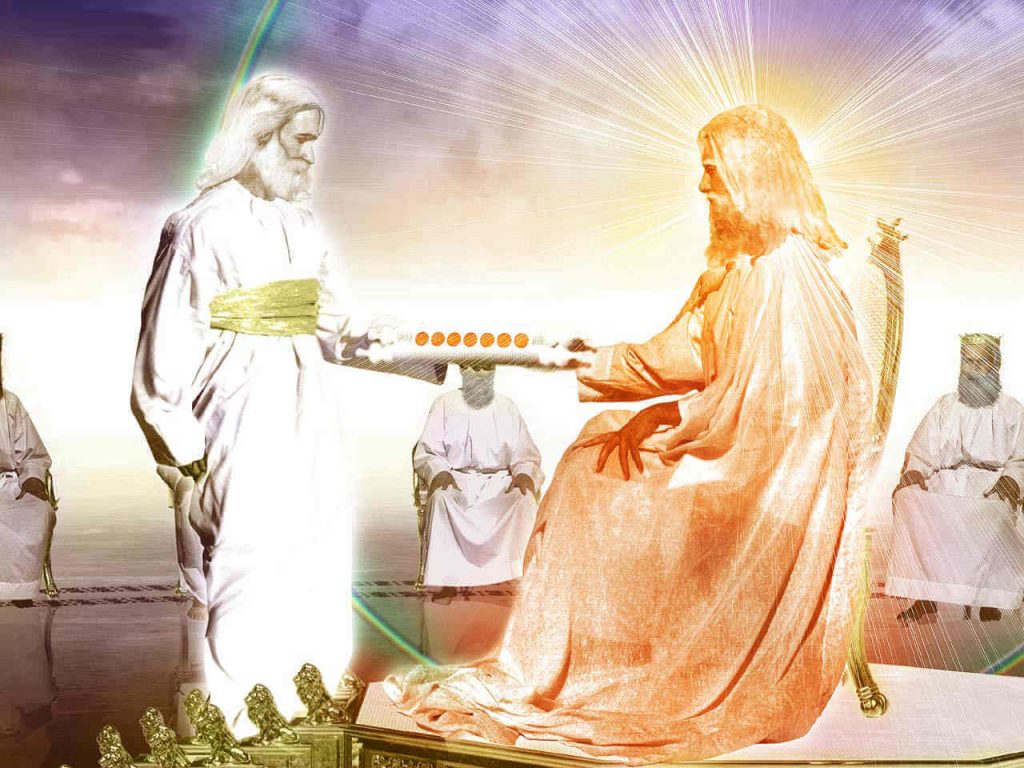PJ54
Well-known member
*** Text for Thursday, June 2, 2022 ***We must be friends with Jesus if we are to have a good relationship with Jehovah. Why is that true? Consider just two reasons. First, Jesus told his disciples: “The Father himself has affection for you, because you have had affection for me.” (John 16:27) He also said: “No one comes to the Father except through me.” (John 14:6) Trying to be Jehovah’s friend without building a close bond with Jesus is like trying to enter a building without using the door. Jesus used a similar illustration when he described himself as “the door for the sheep.” (John 10:7) A second reason is that Jesus perfectly reflected his Father’s qualities. He said to his disciples: “Whoever has seen me has seen the Father also.” (John 14:9) So an important way that we come to know Jehovah is by studying the life of Jesus. As we learn about Jesus, our affection for him will grow. And as our friendship with Jesus grows, our love for his Father will deepen. w20.04 21-22 ¶5-6
All authority has been given me in heaven and on the earth.—Matt. 28:18.

Is Jesus Superior to Jehovah?
Stumper question #42 In Phil 2:9, the NWT inserts the word "other", even though it doesn't appear in the original Greek (see Gr-Engl Interlinear). What is the reason for inserting this word? Is the word "Jehovah" a name? See Ex 6:3, Ps 83:18, and Isa 42:8. How
Is Jesus Superior to Jehovah?

Stumper question #42
In Phil 2:9, the NWT inserts the word “other”, even though it doesn’t appear in the original Greek (see Gr-Engl Interlinear). What is the reason for inserting this word? Is the word “Jehovah” a name? See Ex 6:3, Ps 83:18, and Isa 42:8. How would the verse read if the word “other” had not been inserted? What does scripture say about adding words to the Bible? See Prov 30:5-6.
The anonymous purveyor of these stumper questions betrays his own profound ignorance. The truth is, every translation inserts words where it is justified to convey the intended meaning of the original language.
Taken in context Paul explained Jesus’ new position relative, not only to God, but to everyone else. Paul wrote: “For this very reason, God exalted him to a superior position and kindly gave him the name that is above every other name, so that in the name of Jesus every knee should bend—of those in heaven and those on earth and those under the ground and every tongue should openly acknowledge that Jesus Christ is Lord to the glory of God the Father.”
Any person with common sense who reads the text honestly, without the intent to deceive themselves, will recognize that God and Jesus are not equal. Paul wrote that God exalted Jesus to a higher position and kindly gave Jesus a name, which means authority, above everyone —including the angels. Since God is the one doing the exalting and bestowing the honor it is self-evident that the one who receives the honor is not greater than the one who conveys it.
Obviously, Jesus did not always occupy a superior position. Nor was his name always honored above all other names. As Paul indicates in his letter to the Philippians, Christ was so honored because of his great humility before God and his obedience in coming to earth and subjecting himself to a cruel death. Besides, no sane person would believe that Jehovah honors himself and exalted himself to a superior position. How could the Most High attain a more superior position? Yet that is the kind of stupidity that trinitarians embrace and espouse. And no doubt most will until the bitter end.
It is beyond their grasp that Jehovah exalted his only-created Son and gave him a name above all others. And because of their abiding hatred of the name of Jehovah, which all of the most popular versions of the Bible have removed completely, they cannot accept the simple truth that God did not exalt Jesus above himself. But since that is undeniably true, the name of Jesus is above every other name —the exception being the name of God himself. Since that truth is clearly evident in the text the New World Translation is perfectly justified in inserting “other,” since it is implied that Jesus is not above God.
Yes, of course, the word Jehovah is a name.
Last edited by a moderator:




